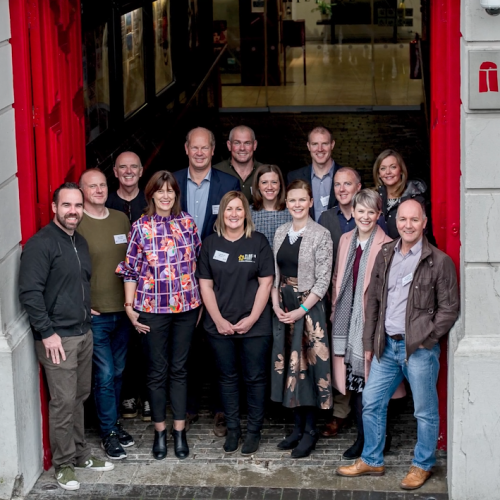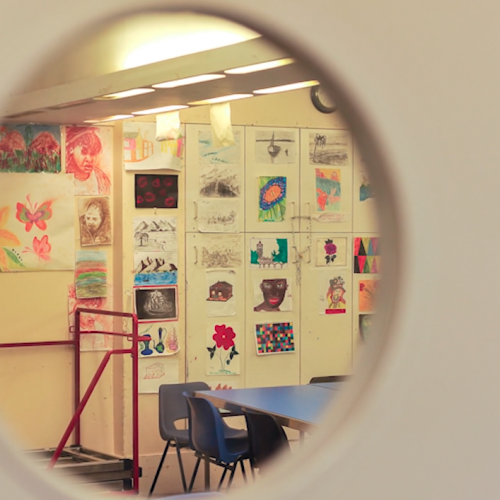Södertälje Municipality (Södertälje kommun)
Södertälje Municipality (Södertälje kommun) is a municipality in the city of Södertälje, located 19 miles away from Stockholm, Sweden. It is an industrial town with many immigrants at the border between metropolitan and rural areas. The Diet Unit at Södertälje Municipality is in charge of providing free meals to municipal schools, kindergartens and nursing homes in the region, and serves total approximately 24,000 meals per day. It was created in 2001 to change residents’ eating habits and support a local and sustainable food production and development. Food can be a key driving force in improving a community and the lives of people living within in. The work being undertaken by Sara and her colleagues at the Municipality of Sodertalje is testament to this. Sodertalje is a small-medium sized city that is surrounded by fertile countryside, that produces high quality produce.
Bottom line
Food can be a key driving force in improving a community and the lives of people living within it . The work undertaken by Sara Jervfors and her colleagues at the Municipality of Sodertalje is a testament to this. Through the creation of a diet policy in 2010, they have been working towards providing high quality, environmentally friendly food for the municipality. They have not only been employing food as a tool to improve environmental issues, create stronger ties between sustainable food producers and consumers, but also as a driving tool for societal change- using it to help young and elderly people, as well as the unemployed and new refugee communities.
Why it matters?
The Södertälje Municipality aims to make Södertälje a regional node for sustainable food production, consumption, research, planning and innovation. The Diet Unit of Södertälje Municipality provides public meals based on the Södertälje Municipality’s Diet policy and the Diet for a Green Planet concept.
- The “Diet for a Green Planet” consists of six criteria in providing food at the public kitchens run by the Diet Unit. They are i) tasty, attractive and healthy, ii) organically grown, iii) minimal waste, iv) locally grown, v) less meat, more vegetables, and whole grain, and vi) seasonal.
- This concept suggests that everybody can be a part of the solution for various social issues through his/her way of eating. The Södertälje Municipality decided the sustainable food system to be a significant political agenda.
- The Diet Unit at Södertälje Municipality has been developing a holistic approach to public meal provision. The work has brought about a systematic change in the way that meals are produced, from pre-prepared, powdered, unhealthy, to locally sourced, healthy, and environmentally friendly.
- Through undertaking a collaborative approach that brings together civil servants with teachers and parents, 95% of schools and elderly care homes now have fully equipped kitchens to prepare and provide food. Sara emphasised, “When two different cultures in the same municipality meet then it gets very creative, and we can find new ideas.”.
- Sodertalje has become an example of a living lab, a living lab for sustainable food systems.
Between the lines
People do not realise enough that what we eat has great effects on our planet environment and health to themselves.
- The earlier research reveals how food production and consumption in the region has been negatively influencing nature protection. The conventional agriculture in the region uses a high level of fertilizer, and its runoff has resulted in algae blooms which have had serious impact on sea life diversity diverse sea life.
- Moreover, the obesity rate for Swedish children has been rising and has reached around 6~8%.
- High meat consumption and food waste become another critical factor to exploit the landscape for an arable farm.
Through converting the agriculture systems and eating culture in the region, the Södertälje Municipality expects to directly improve the environment and improve children’s health. In the long-run, they also hope to create more jobs in the green economy and contribute to social integration by serving various range of international recipes at schools.
Go deeper
- The Diet Unit of Södertälje Municipality’s vision – “Food – the key to a better future”,
- The Diet Unit of Södertälje Municipality’ Diet Policy – Diet Policy within pre-schools, schools and elderly care
- City Planning Office of Södertälje Municipality, “Growing together: creating a sustainable future through food – Södertälje AGRI-URBAN Integrated Urban Plan”
- E. Adams’ URBACT blog page,“Sharing Food to Save the Planet: The Unusual Suspects Festival”
- Hunter College, New York City Food Policy Center’s page, “Diet for a Green Planet, Södertälje : Urban Food Policy Snapshot”,
- Baltic Ecological Recycling Agriculture and Society(BERAS)’s research reports on agriculture and Baltic environment –
- “Effective recycling agriculture around the Baltic Sea: Background report”
- “Diet for a Clean Baltic in Practice”


